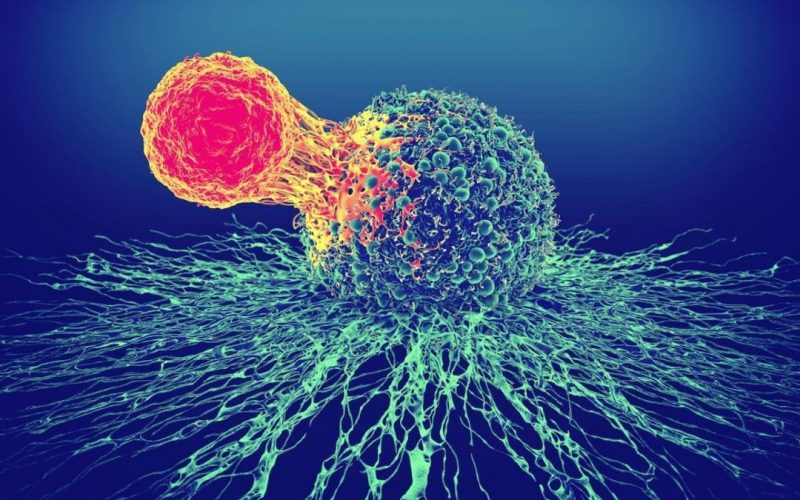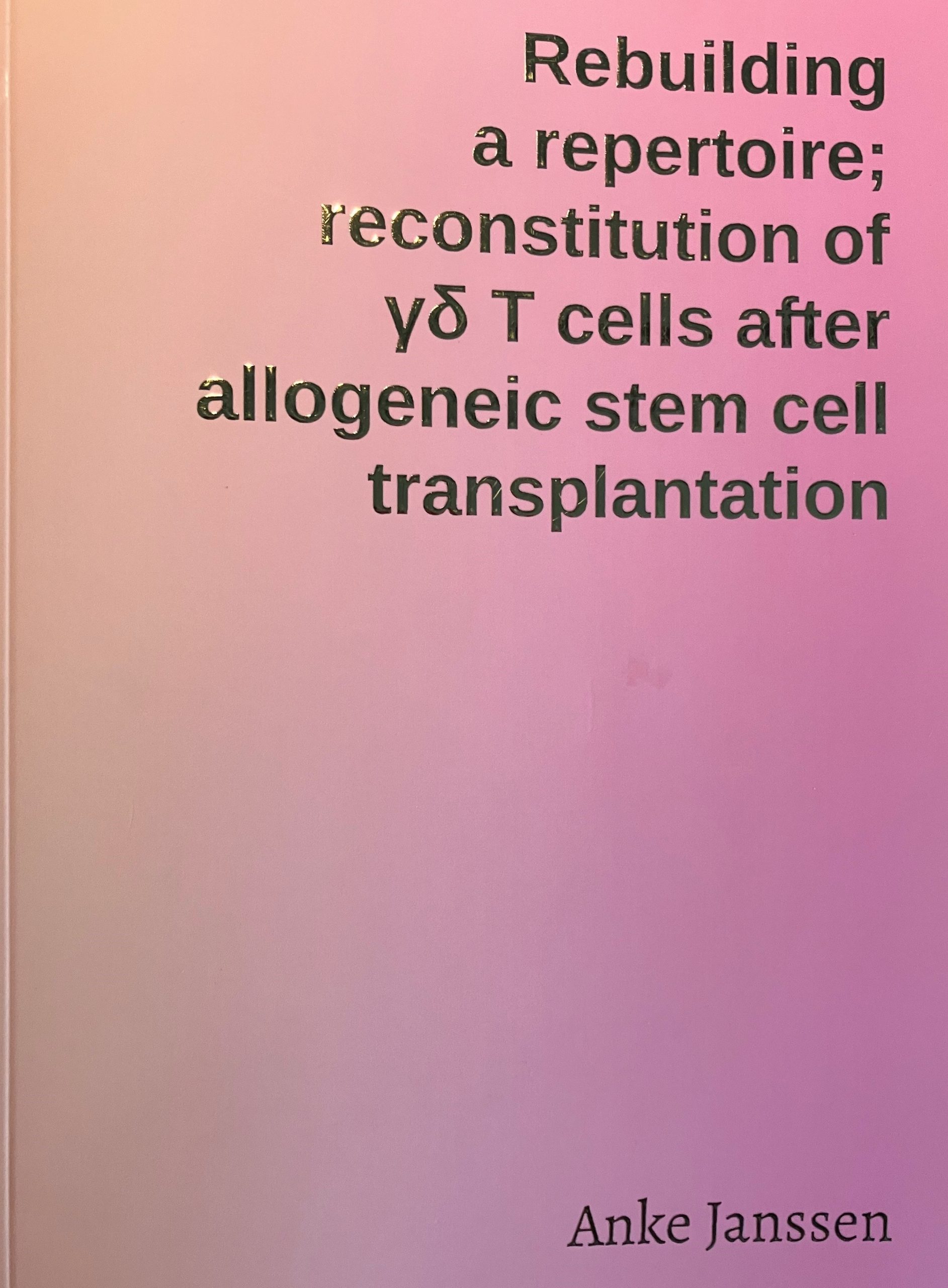The PhD work of Anke Janssen (UMC Utrecht) demonstrates that γδ T cells can play a crucial role in the first months after a stem cell transplantation by reducing the risk of viral reactivation.
γδ T cells are among the first immune cells to recover after a donor stem cell transplantation (SCT). SCT still remains the only curative treatment for various hematological malignancies, but is often complicated by infections, relapses and graft versus host disease (GVHD), a severe inflammatory reaction in organs of the recipient. T cells play a crucial role in both the efficacy of the treatment as well as the severe complications such as GVHD. Whereas αβ T cells are extensively studied after SCT, the role of γδ T cells is less clear. In the PhD thesis by Anke Janssen, MD (Department of Hematology and Center for Translational Immunology, UMC Utrecht) the role of γδ T cells after SCT is explored and their potential for therapeutic interventions is investigated.
GVHD after a donor SCT is mainly driven by αβ T cells. By depletion of the graft of αβ T cells to reduce the incidence of GVHD, while retaining the γδ T cells to control viral reactivations less complications after SCT were expected. In a multicenter, prospective Phase 1/2 clinical study in 35 adults, Anke Janssen and co-workers showed a favorable outcome with indeed less GVHD after αβ T cell depleted SCT. In depth analyses of the immune system after αβ T cell depleted SCT in the context of viral reactivations such as cytomegalovirus (CMV) and Epstein-Barr virus (EBV) showed the differences in reconstitution of the αβ- and γδ T cells. In the abcense of sufficient numbers and diversity of αβ T cells, γδ T cells played a crucial role in reducing the risk of viral reactivation during the first months after SCT.
In the second part of this thesis the investigators identified novel tumor reactive γδ T cell receptors against a variety of cancer types. These receptors are tested in the TEG (αβ T cells engineered to express a defined γδTCR) concept and are interesting leads for future γδ T cell based immune effector cell therapies. For example, TEG001 (developed at UMC Utrecht and currently under investigation in a phase I clinical trial), which expresses a specific γ9δ2 T cell receptor that – in preclinical studies – has a proven high affinity and activity against various cancer types.
“My PhD research shows that γδ T cells play a crucial role in immune reconstitution after stem cell therapy, in particular in platforms where αβ T cells are depleted. As a result of the activity of γδ T cells against (viral) infections as well as against tumors are treatment strategies based on γδ T cell receptors a promising option for future immune therapies.”
Anke Janssen, MD (1985, Tilburg) defended her PhD thesis on December 3, 2024 at Utrecht University. The title of her thesis was “Rebuilding a repertoire; reconstitution of γδ T cells after allogenic stem cell transplantation”. Supervisor was prof. Jürgen Kuball, MD, PhD (Center for Translational Immunology and Department of Hematology, UMC Utrecht). Co-supervisors were Moniek de Witte, MD, PhD (Department of Hematology, UMC Utrecht) and Dennis Beringer, PhD (Center for Translational Immunology, UMC Utrecht). Anke Janssen works as an internist-hematologist at UMC Utrecht.

